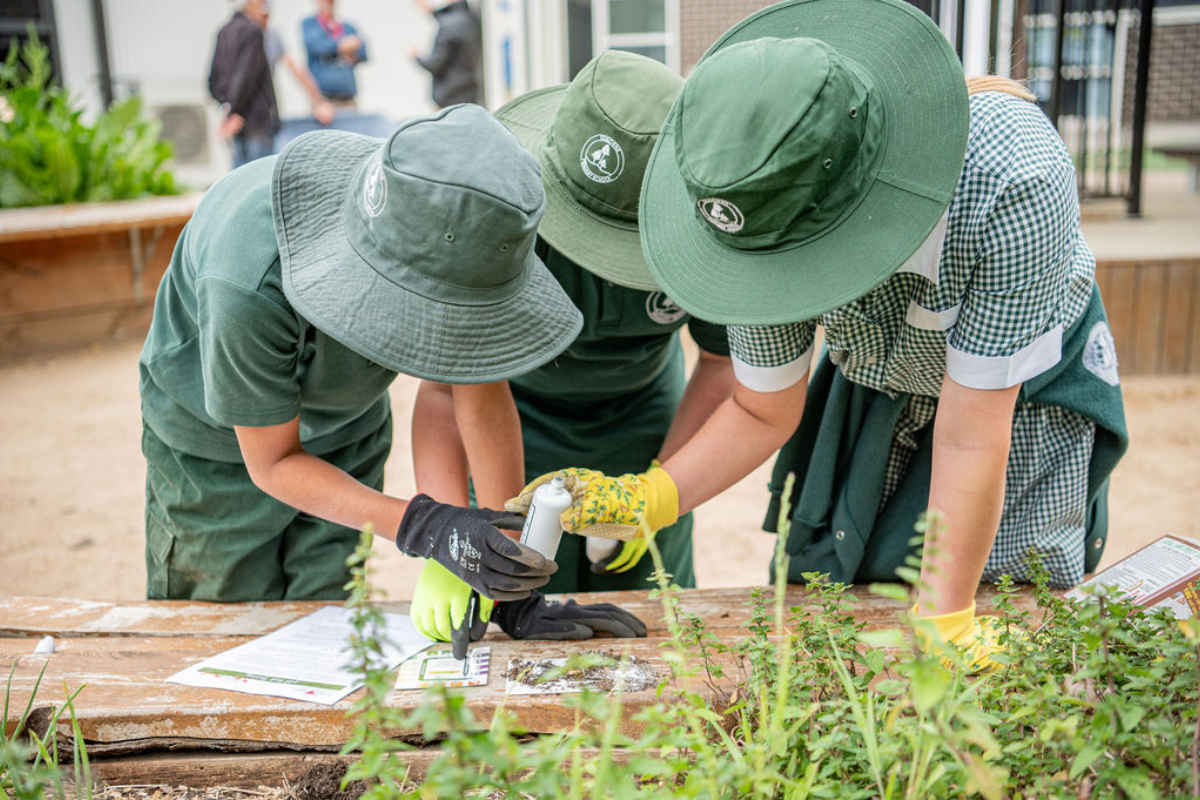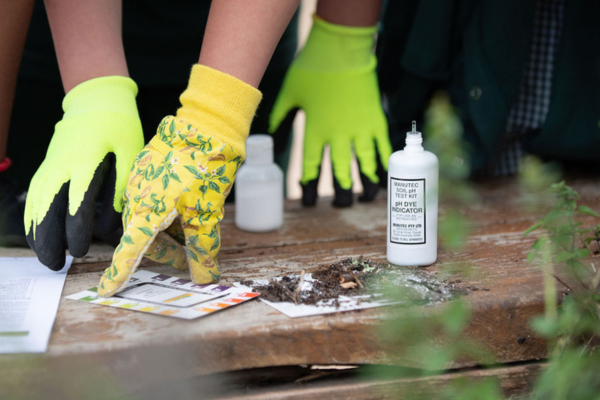Inspire young scientists with five STEM activities

From the fridges that keep our veggie harvest fresh to the handy kits that test our soil’s pH levels, the achievements of modern science are all around us in the kitchen and garden. Celebrate science and STEM education during National Science Week, which runs from Saturday 10 to Sunday 18 August.
A collaboration by the Federal Government, the ABC, CSIRO and the Australian Science Teachers Association, this annual awareness week encourages universities, schools and research institutions across Australia to host science-themed events and activities. Around one million people participate in National Science Week each year.
We’re passionate about how our Kitchen Garden Program facilitates cross-curriculum links to STEM subjects. Outside of a traditional classroom setting, science comes to life in the kitchen through explorations of freezing, melting, evaporating and condensing. In the garden, students observe lifecycles, test soil pH levels and understand weather patterns.
“The garden is an opportunity to teach children most things; it's science, it's maths, it's food, it's a happy, wellness place.” - Garden Educator, Auburn South Primary School VIC.
If you’re keen to bring National Science Week into your kitchen and garden classes this August, we’ve hand-picked our five of our favourite STEM resources from our online resource library and community hub, the Shared Table.

1. Soil testing
Before you begin your next season’s planting, you can check if your soil is up to scratch and capable of producing beautiful veggies! pH is a scale to specify acidity or alkalinity. When you test your soil’s pH levels, you’re checking to see if it’s too acidic or too alkaline, which can prevent plants from getting the right nutrients they need. For example, fruits like blueberries prefer acidic soil around 4-5, while garlic can grow in alkaline soil up to a value of 8.
For this activity, students will need our pH soil testing resource, a soil testing chart plus a pH test kit, which you can get at most garden centres. This fun, hands-on science experiment can also help inform where to plant certain produce based on their acidic and alkaline preferences.

2. Garden observation
Perfect for beginner scientists, our ‘Window on the World’ activity invites students to make detailed observations about their natural environment. Once they’ve constructed their ‘windows’ by assembling small sticks into a square or crafting a paper cutout, they can take this out into the garden and lay it on the ground to peer through. In the resource worksheet, students can take detailed notes about the plants, insects and soil that they can see through their little ‘window’.
This introductory activity for students new to the kitchen garden encourages them to practice mindfulness in the garden by enjoying the simple pleasure of quiet observation of the natural world.
Students at Warrnambool East Primary School in Victoria enjoyed a sunny spring afternoon making detailed observations of their own garden late last year.
“This was a great garden activity for everyone to really take notice of their surroundings. We set up paper windows throughout the garden and the students chose to draw what they saw from different angles and perspectives in the garden,” said the Garden Educator at Warrnambool East Primary.

3. Plant identification and classification
Level up your student’s biology skills with the identifying and classifying plants resource. This one is from Kitchen Garden Education for Secondary Years and links the study of biology with outdoor garden classes.
Using a data collection table, students can take a trip to their kitchen garden and fill in the blanks by identifying all the different plants that they see. If there are any gaps in their knowledge, students are then encouraged to do further research to fill out the rest of the table completely and accurately.

4. The science of taste
Now it’s time for some kitchen alchemy! Delve into the world of taste and flavour with our science of taste unit. It can be found in our book Tools for Teachers 5 – Years 5 & 6. Made up of five lessons, each focuses on the five main tastes: sweet, sour, salty, bitter and ‘umami’.
This resource has got it all – cross-curriculum links to science, language, geography and health. Plus, it includes delicious recipes to try from all around the world. Students will get to explore the science of different tastes and how flavour can vary depending on factors such as temperature, flavour combinations and personal preference.

5. Heat and energy transfer
We use heat and energy in the kitchen nearly every single day but how much do we know about how it works? In our heat and energy resource, students learn how heat is conducted in the kitchen and which materials are more effective heat conductors than others.
You can take the learnings from this resource and apply it to other kitchen activities, just like students from North Melbourne Primary School who experimented with how yeast reacts to different temperatures.
“We've run this hands-on science experiment activating yeast in several different water temperatures twice in the past year and found it's very effective - such visual experiences teach children more deeply,” said Kitchen Specialist Kristen Re. “Plus, students learn what lukewarm water temperature feels like without needing to use a thermometer.”
We hope this list of our favourite STEM resources has given you plenty of inspiration for National Science Week. Remember, Kitchen Garden Program members can share their class’s scientific endeavours with our community over on the Shared Table – we can’t wait to see what you’ve been up to!
Not a member yet? Join a community of schools and early childhood services right around Australia teaching young people how to grow, harvest, prepare and share! Email us at membership@kitchengardenfoundation.org.au to get started.
< Back to Latest News
